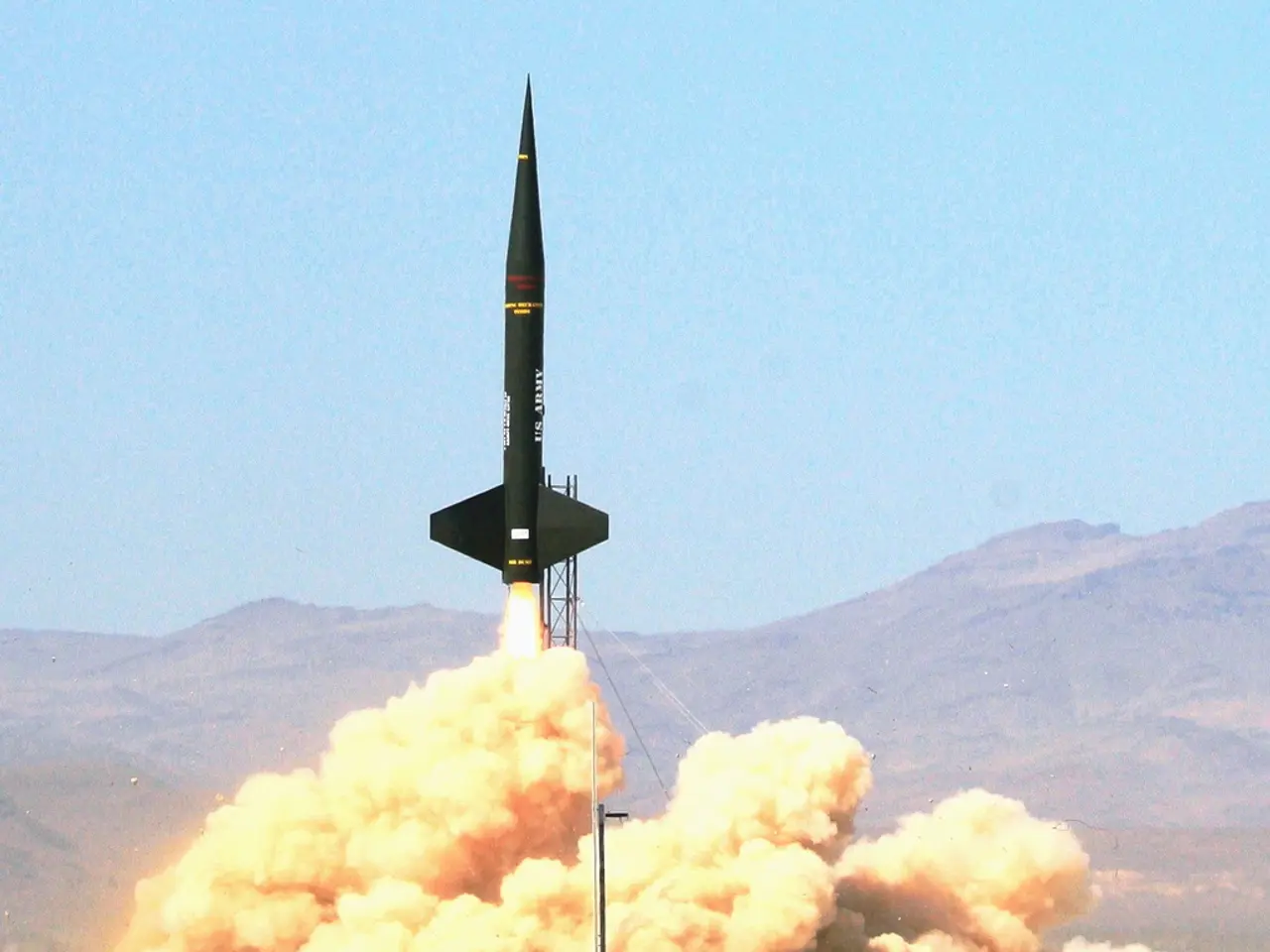Weather satellite GOES-U successfully orbited via Falcon Heavy rocket launch
GOES-U Satellite Successfully Launched, Strengthening Weather Monitoring
The GOES-U satellite, the final installment in the Geostationary Operational Environmental Satellites (GOES)-R Series, has been successfully launched from Kennedy Space Center on June 25, 2024. This marks a significant milestone in the Western Hemisphere's advanced weather and environmental monitoring system.
GOES-U's role is pivotal, as it will track severe storms, hurricanes, wildfires, lightning, fog, and other hazards across North America, Mexico, Central and South America, and the Caribbean. The satellite also monitors solar activity and space weather, providing early warnings about disruptions that could impact power grids, communications, and navigation systems.
The Falcon Heavy rocket, developed by SpaceX, was used for the launch of GOES-U. This rocket, with its triple core configuration, offers an initial thrust of more than 2,200 tonnes, equivalent to approximately eighteen Boeing 747s taking off. The successful launch was the tenth flight of the Falcon Heavy since its introduction in 2018.
The two lateral boosters of the Falcon Heavy returned to land successfully at Cape Canaveral, demonstrating the reusability of these crucial components. The Falcon Heavy rocket, for this launch, consisted of three modified Falcon 9 first stage boosters.
GOES-U operates in geostationary orbit, about 36,000 km above Earth, allowing continuous observation of the same hemisphere. This provides uninterrupted data streams important for meteorological and environmental monitoring. The satellite offers advanced imagery and atmospheric measurements, including real-time lightning mapping, which significantly enhances forecasting and early warning capabilities.
The GOES-R Series, including GOES-U, represents a continuation of nearly 50 years of NOAA's critical Earth-observing data. GOES-U’s data supports weather forecasting, environmental monitoring, and space weather surveillance, all essential for national security and public safety.
NOAA is currently developing the next generation of geostationary satellites under the GeoXO mission, which will build upon GOES-U’s capabilities with new instruments to better address Earth's changing environment. The GOES-R Series program, which includes GOES-U, is overseen by NOAA through an integrated NOAA-NASA office.
With the successful launch of GOES-U, the satellite will provide crucial data for climate research and the protection of Western populations, further strengthening our ability to anticipate and respond to extreme weather events.
Read also:
- Exploration of Culinary Underwater Dining: Balancing Myth and Science in Nutrition Studies
- Roseville's electric bus and fleet operations now operated with a new smart charging system, courtesy of BetterFleet.
- Evocative images reveal how worldwide warming might resonate in our daily routines
- IKEA's affiliate, Ingka, pours funds into China-based plastic recycling company, Re-mall








